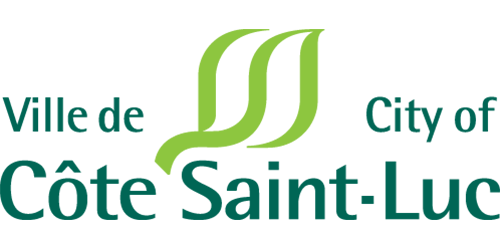An alliance of 23 municipalities with bilingual status from across Quebec has filed a Judicial Review for Declaratory Orders in the Superior Court of Quebec, challenging parts of the Act respecting French, the official and common language of Quebec, or Law 96.
The legal action covers five areas including contracts and communications, the obligation to adopt resolution to maintain bilingual status, illegal searches and seizures, government grants, and the obligation to discipline employees.
The recourse challenges the validity and applicability of the modifications listed below to the Charter of the French Language in as much as they affect the rights and powers of municipalities with bilingual status under Sec. 29.1 of the Charter of the French Language.
More specifically, the present action aims at contesting the applicability and/or clarifying the interpretation of the following sections of Law 96 and the Charter of the French Language:
- Section 21 of the Charter of the French Language and sections 6 and 8-16 of Law 96 regarding contracts and communications, which creates sections 13.1,13.2, 16.1, 18.1, 18.2, 20.1, 21.1 to 21.12, 22.2 to 22.5 of the Charter of the French Language and modifies sections 18, 19, 21 and 26 the Charter of the French Language;
- Section 24 of the Charter of the French Language, regarding bilingual signage for shared services on the territory of a municipality with bilingual status;
In addition, the Plaintiffs submit the following sections of Law 96 should be declared invalid and inoperative:
- Section 19 concerning the obligation to adopt a Resolution in order to maintain bilingual status, which creates section 29.2 of the Charter of the French Language;
- Section 111, 114, 115 regarding illegal search and seizures, which modifies section 166, 174, 175 of the Charter of the French Language;
- Section 117 concerning the power to withdraw government grants, which creates section 204.31 of the Charter of the French Language;
- Section 117 regarding the obligation to discipline employees, creating section 204.32 of the Charter of the French Language;
Law 96 compromises the concerned municipalities’ bilingual status, which is intrinsically part of their cultural identity, but the proposed provisions also extend far beyond language rights and undermine constitutionally protected and inalienable rights that belong to all Quebec citizens.
The alliance of 23 municipalities include: Baie d’Urfé, Beaconsfield, Blanc-Sablon, Bonne-Espérance, Chichester, Côte Saint-Luc, Dollard-des-Ormeaux, Dorval, Havelock, Hope Town, Kazabazua, Kirkland, L’Isle-aux-Allumettes, Montréal-Ouest, Mulgrave-et-Derry, New Carlisle, Pointe-Claire, Senneville, Sheenboro, Shigawake, Stanbridge East, Wentworth, and Westmount.
The alliance is represented by the law firm of Grey Casgrain s.e.n.c. The action was filed at the Superior Court of Quebec on June 6, 2023.
Quotations
“Law 96 forces bilingual municipalities to discipline our employees for using English, which is interference in our operations. This will create a climate of fear where staff will be uncertain about what they are allowed to do and risks reducing the exemplary customer service we currently provide in French and English.” — Heidi Ektvedt, Mayor of Baie D’Urfé (population: 3,765)
“Blanc-Sablon is the eastern-most municipality of Quebec. Roughly 80 percent of our population is English-speaking. As a municipality of Quebec, we prioritize French in official documentation and public communication. We have grave concerns about how the law will affect our ability to recruit workers from among our mostly English-speaking community, as many aren’t proficient in French.” — Andrew Etheridge, Mayor of Blanc-Sablon (population 1,090)
“Law 96 has created much confusion with regards to the obligation to use French for all contracts. It’s absurd that for our municipality where 99% of the population has English as their preferred language, we can’t produce contracts with suppliers in our community in English.” —Dale Roberts-Keats, Mayor of Bonne-Espérance (population: 695)
“The purpose of local government is to provide exemplary service to the people in our community, without judgement. The English language forms an important part of the identity of a majority of our residents. We have people in our community who are gay and straight, French speaking and English speaking, Christian, Jewish and Muslim. The only way to provide municipal service in a community like ours is through respect and tolerance of differences. Bill 96—like Bill 21 before it—is flawed and we look forward to making our case in court.” —Mayor Mitchell Brownstein, Côte Saint-Luc (population: 33,975)
“Our decision to take action against this legislation stems from a serious apprehension of the inevitable threat that its application poses to the safety and well-being of our residents as well as the risk it poses to the financial health and future development of our city.” —Alex Bottausci, Mayor of Dollard-des-Ormeaux (population: 48,200)
“Bilingualism forms an integral part of the everyday life of the Kirkland community. Our town council is committed to preserving the harmonious coexistence of the French and English languages within the Kirkland territory to ensure the Town of Kirkland continues to provide all of its services to the public in both French and English. We wish to continue to stand out as a proud city where bilingualism is the first language. We aspire to ensure that bilingualism continues to form an integral part of the everyday life of the Kirkland community. We have conviction that the French and English languages will continue to coexist in harmony in Kirkland, as they have for several decades, even before the incorporation of the municipality in 1961.” —Mayor Michel Gibson, Kirkland (population: 19,385)
Links
- Census data (PDF)
- Location of municipalities (PDF)
